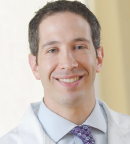DATA FROM a new survey show that as many as 80% of oncologists have discussed medical marijuana use with their patients. According to the authors, this is the first nationally representative survey to examine oncologists’ practices and beliefs on the subject since the implementation of state medical marijuana laws. The research was recently published in the Journal of Clinical Oncology.1
“Our study shows that medical marijuana is a salient topic in cancer care today, and the majority of oncologists think it may have utility for certain patients,” said study author Ilana Braun, MD, Chief of the Division of Adult Psychosocial Oncology at the Dana-Farber Cancer Institute in Boston. “While this topic is common, however, data on medical marijuana use is less so. We need to bridge this gap so oncologists have the unbiased information they need to assist with decision-making related to medical marijuana use.”

“We need to carry out comparative effectiveness studies of medical marijuana to clarify its role.”— Ilana Braun, MD
Tweet this quote
Medical Marijuana Laws and Clinical Practice Guidelines
CALIFORNIA ENACTED the United States’ first medical marijuana law in 1996, and today its use is legal in more than 30 states, almost all listing cancer as a qualifying condition. In the 22 intervening years, however, no randomized clinical trial has investigated the utility of whole-plant medical marijuana to alleviate symptoms such as pain, insomnia, or nausea and vomiting in patients with cancer.
Many studies have explored the use of pharmaceutical cannabinoids, which are highly refined, quality-controlled products consisting of one or two active ingredients and available through a pharmacy. Nonpharmaceutical medical marijuana, however, is often from the whole plant, containing hundreds of active ingredients, and thus cannot easily be compared to pharmaceutical cannabinoids.
Recent clinical practice guidelines from ASCO recognize knowledge gaps about medical marijuana use in oncology. The guidelines note insufficient evidence to recommend medical marijuana for initial management of chronic pain in cancer survivors, although evidence suggests it is worthy of consideration as an adjuvant analgesic and for managing pain conditions that are difficult to treat.2 Evidence also remains insufficient to recommend medical marijuana for the prevention of nausea and vomiting in patients with cancer who receive chemotherapy or radiation therapy.3
NOTE TO READER
In the four articles addressing cannabinoids in cancer care in this issue of The ASCO Post (see related articles at bottom of the page), conclusions may differ on the efficacy of cannabinoids in controlling chemotherapy-related nausea and vomiting and other effects of cancer and its treatment. This may be due in part to differences in the evidence reviewed, differences in individual perspectives, differences in the characteristics of cannabis or cannabinoid exposure (ie, oral cannabinoids, marijuana plant, other formulations), among other differences. These articles are not intended to accept or reject the associated risks and benefits of cannabinoids in cancer care. Rather, these articles are intended to call attention to the need for more research on the use of medical marijuana in oncology. Marijuana is legal in many states, and patients may ask their clinicians about the drug’s role in their care. Oncologists need to be able to provide informed guidance and evidence-based care for their patients with cancer.About the Study
RESEARCHERS MAILED a survey to 400 practicing oncologists in the United States, randomly selected from a national database of board-certified medical oncologists. Of the 237 participants who responded, more than half (55%) practice in states where medical marijuana is legal.
The survey asked oncologists about their discussions with patients, recommendations they provided, and their knowledge of medical marijuana. Respondents were also asked about their views on the effectiveness of medical marijuana for cancer-related symptoms as well as its risks compared to other treatments.
Researchers found that most oncologists surveyed had encountered questions about medical marijuana, and many expressed research and education needs to better inform the care they provide to patients with cancer. Specifically, 80% of physician respondents reported discussing medical marijuana with patients, and 78% reported that these conversations were most frequently initiated by patients and their families. Less than 30% felt knowledgeable enough about medical marijuana to make recommendations, and nearly half (46%) recommended medical marijuana use to patients in the past year.
Further, more than two-thirds (67%) of physicians who responded to the survey believed medical marijuana to be a helpful treatment for alleviating pain, when used together with standard therapies, and 75% and 52% viewed it as presenting a lower risk than opioids for overdose death and addiction, respectively. Nearly two-thirds (65%) also viewed medical marijuana as equally or more effective than standard treatments for poor appetite and extreme weight loss. When evaluating its effectiveness for other conditions, however, many oncologists responded, “I do not know,” from 29% for nausea and vomiting to 45% for poor sleep.
The study showed that the geographic location, type of practice, and size of practice contributed to significant differences in oncologists’ practices regarding medical marijuana. Oncologists practicing in the Western United States were more likely to have discussed (95%) or recommended (84%) medical marijuana, and oncologists practicing in the South were least likely to have discussed (69%) or recommended it (35%). Respondents practicing outside a hospital setting were more likely to recommend medical marijuana than hospital-based oncologists (54% vs 35%). Oncologists who saw the most patients each week were more likely to have discussed medical marijuana than those who saw the least patients each week (89% vs 70%).
Next Steps
IN THE ARTICLE, researchers call for clinical trials to address these gaps in knowledge regarding medical marijuana use. “I think we need to carry out comparative effectiveness studies of medical marijuana to clarify its role,” said Dr. Braun. “We also need to extend our survey to other specialties and to patients with cancer.”
ASCO Perspective

Andrew S. Epstein, MD
"IT’S CLEAR from this study that patients and their families want to know more about medical marijuana for the treatment of cancer-related symptoms and often initiate discussions with their oncologists. We need to be prepared to have these conversations, and that means having research to support our recommendations. This study highlights the important need for more research on the use of medical marijuana in oncology, so we can provide informed guidance and care that meets all of our patients’ needs,” commented Andrew S. Epstein, MD, ASCO Expert in Patient Care. ■
DISCLOSURE: Drs. Braun, Wright, and Peteet reported no conflicts of interest. This study received funding from the Hans and Mavis Lopater Foundation.
REFERENCES
1. Braun M, et al: Medical oncologists’ beliefs, practices, and knowledge regarding marijuana used therapeutically. J Clin Oncol 36:1957-1962, 2018.
2. Paice JA, et al: Management of chronic pain in survivors of adult cancers: American Society of Clinical Oncology clinical practice guideline. J Clin Oncol 34:3325-3345, 2016.
3. Hesketh PJ, et al: Antiemetics: American Society of Clinical Oncology Clinical Practice Guideline Update. J Clin Oncol 35:3240-3261, 2017.

